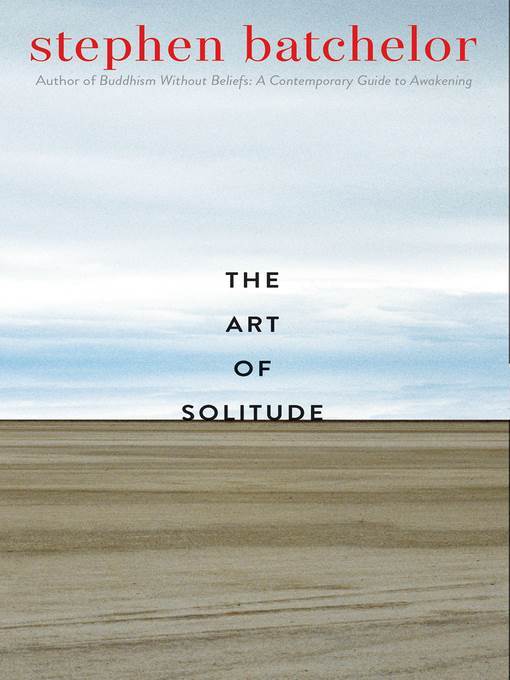
The Art of Solitude
- اطلاعات
- نقد و بررسی
- دیدگاه کاربران
نقد و بررسی

January 10, 2020
Prominent Buddhist scholar Batchelor (Buddhism Without Beliefs) looks at examples from Buddhism, Christianity, literature, and art to explore how devoted adherents of those who seek the wisdom of solitude have shared their insights with the world. This book also serves to show how Batchelor has explored Buddhist meditation. All of these endeavors have provided him with a deeper knowledge of himself as well as a more profound appreciation of art. Of particular interest to the author are the writings of French philosopher Michel de Montaigne and the paintings of Dutch artist Johannes Vermeer. Though these figures are separated by a century and working in different mediums, Batchelor provides an illuminating discourse of the connections in their life and works. The exploration of the self is not at all dissimilar to the Hero's Journey described by mythologist Joseph Campbell. However, rather than going out into the world to conquer some physical adversary, in this case the hero must look within.
VERDICT A wide-ranging work with many poignant assertions that will appeal to those wishing to learn about more about the spiritual aspects of practicing mindfulness.--Brian Renvall, Mesalands Community Coll., Tucumcari, NM
Copyright 2020 Library Journal, LLC Used with permission.

December 15, 2019
A teacher and scholar of Buddhism offers a formally varied account of the available rewards of solitude. "As Mother Ayahuasca takes me in her arms, I realize that last night I vomited up my attachment to Buddhism. In passing out, I died. In coming to, I was, so to speak, reborn. I no longer have to fight these battles, I repeat to myself. I am no longer a combatant in the dharma wars. It feels as if the course of my life has shifted onto another vector, like a train shunted off its familiar track onto a new trajectory." Readers of Batchelor's previous books (Secular Buddhism: Imagining the Dharma in an Uncertain World, 2017, etc.) will recognize in this passage the culmination of his decadeslong shift away from the religious commitments of Buddhism toward an ecumenical and homegrown philosophy of life. Writing in a variety of modes--memoir, history, collage, essay, biography, and meditation instruction--the author doesn't argue for his approach to solitude as much as offer it for contemplation. Essentially, Batchelor implies that if you read what Buddha said here and what Montaigne said there, and if you consider something the author has noticed, and if you reflect on your own experience, you have the possibility to improve the quality of your life. For introspective readers, it's easy to hear in this approach a direct response to Pascal's claim that "all of humanity's problems stem from man's inability to sit quietly in a room alone." Batchelor wants to relieve us of this inability by offering his example of how to do just that. "Solitude is an art. Mental training is needed to refine and stabilize it," he writes. "When you practice solitude, you dedicate yourself to the care of the soul." Whatever a soul is, the author goes a long way toward soothing it. A very welcome instance of philosophy that can help readers live a good life.
COPYRIGHT(2019) Kirkus Reviews, ALL RIGHTS RESERVED.




دیدگاه کاربران